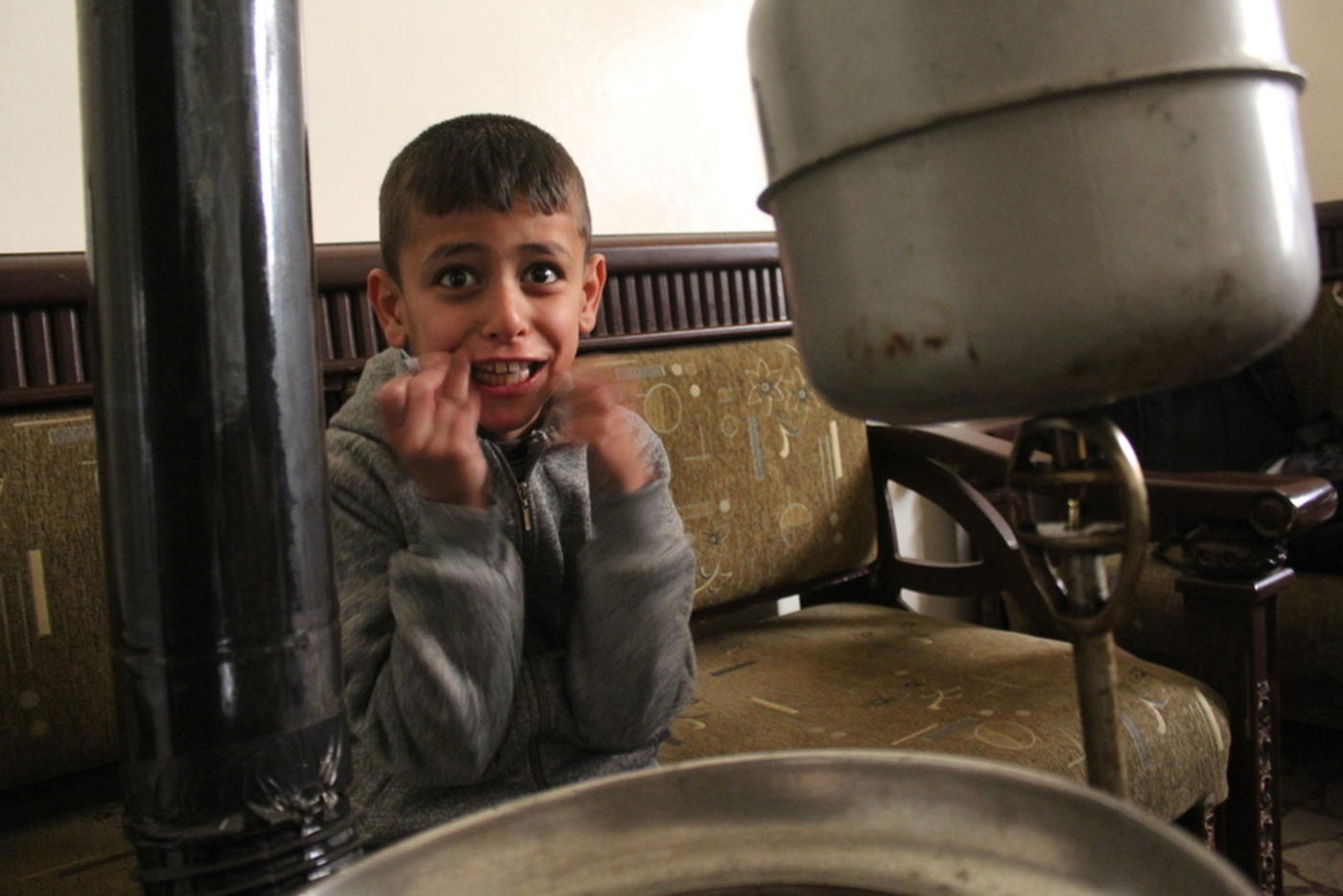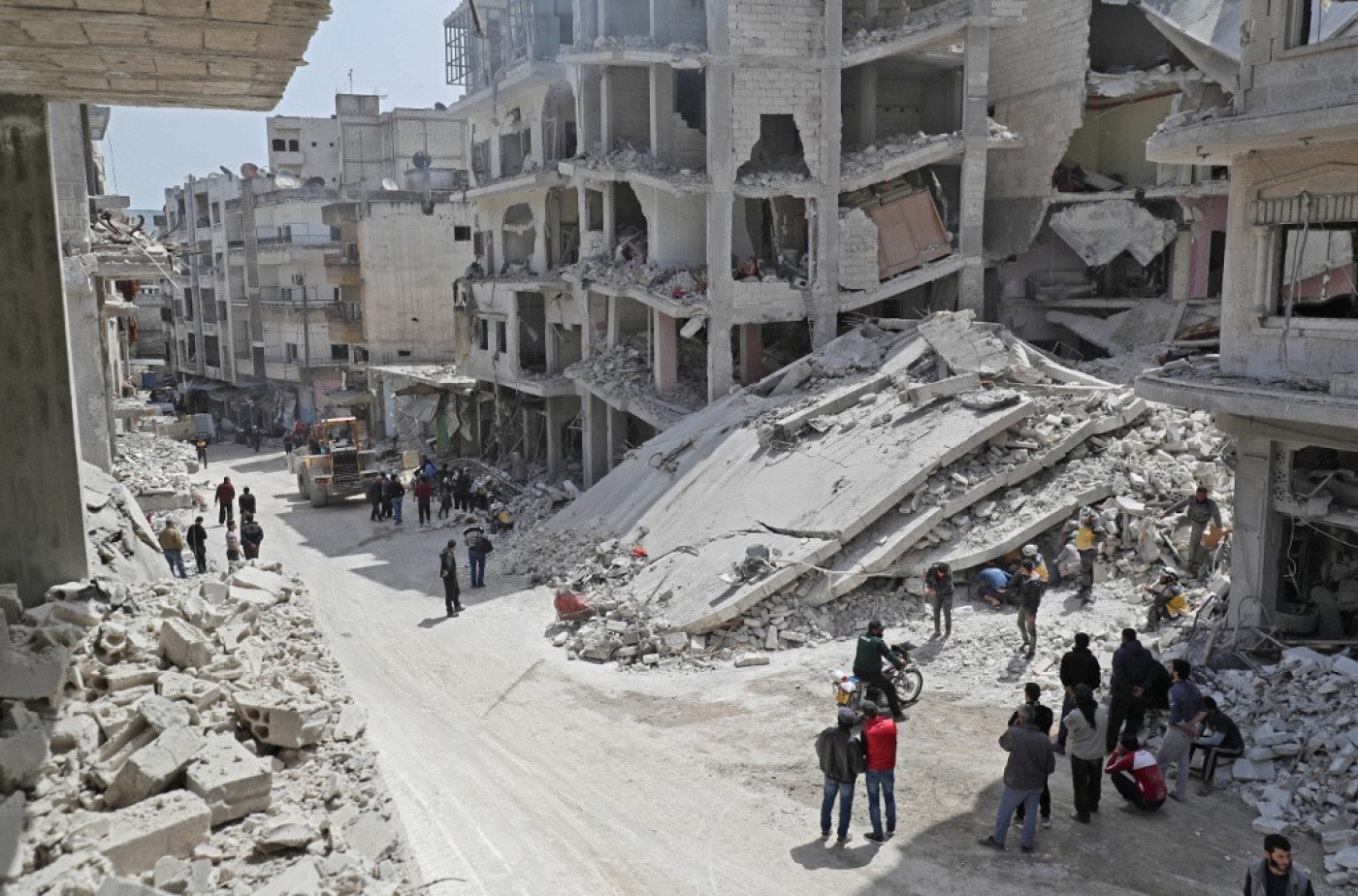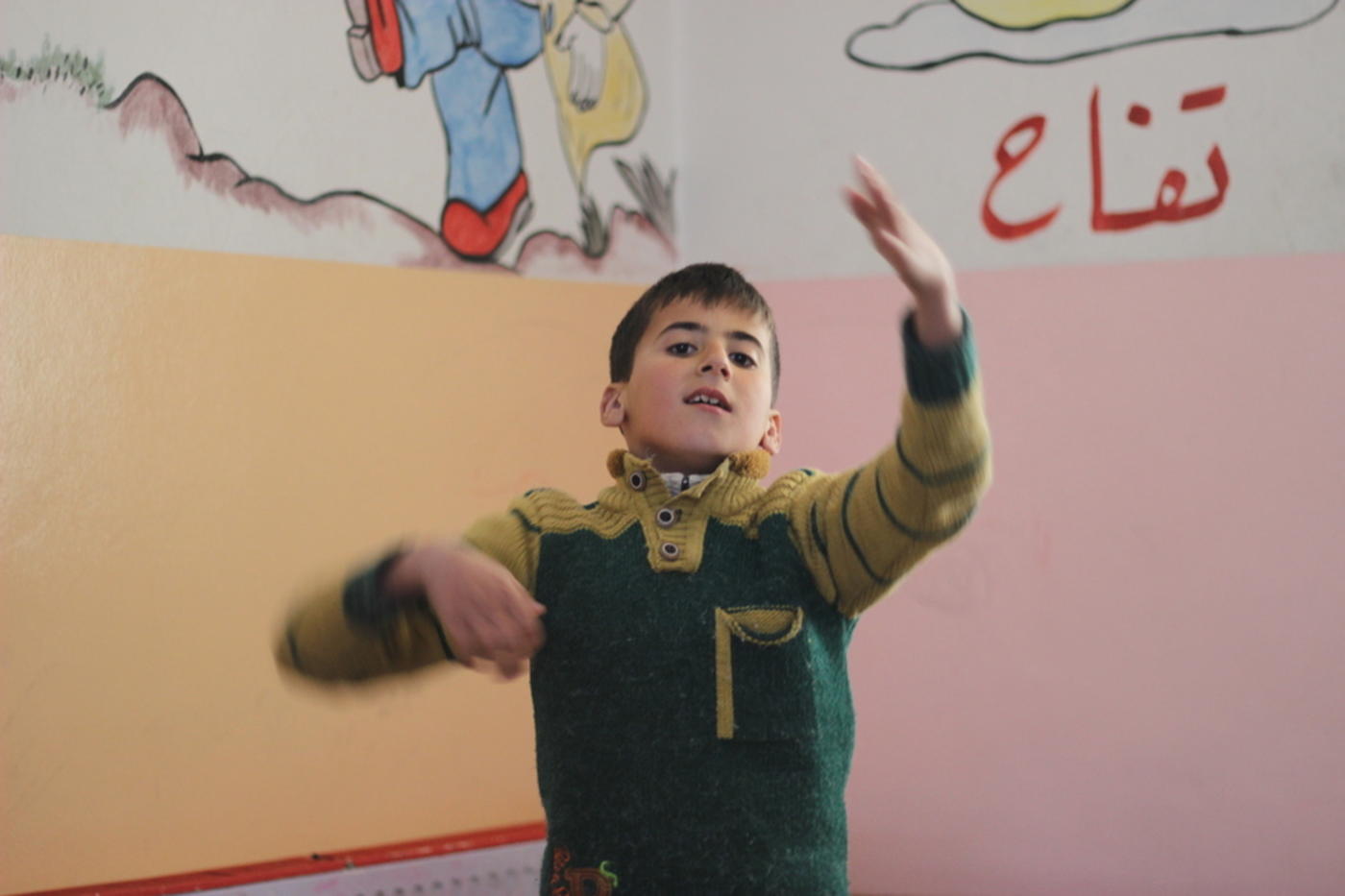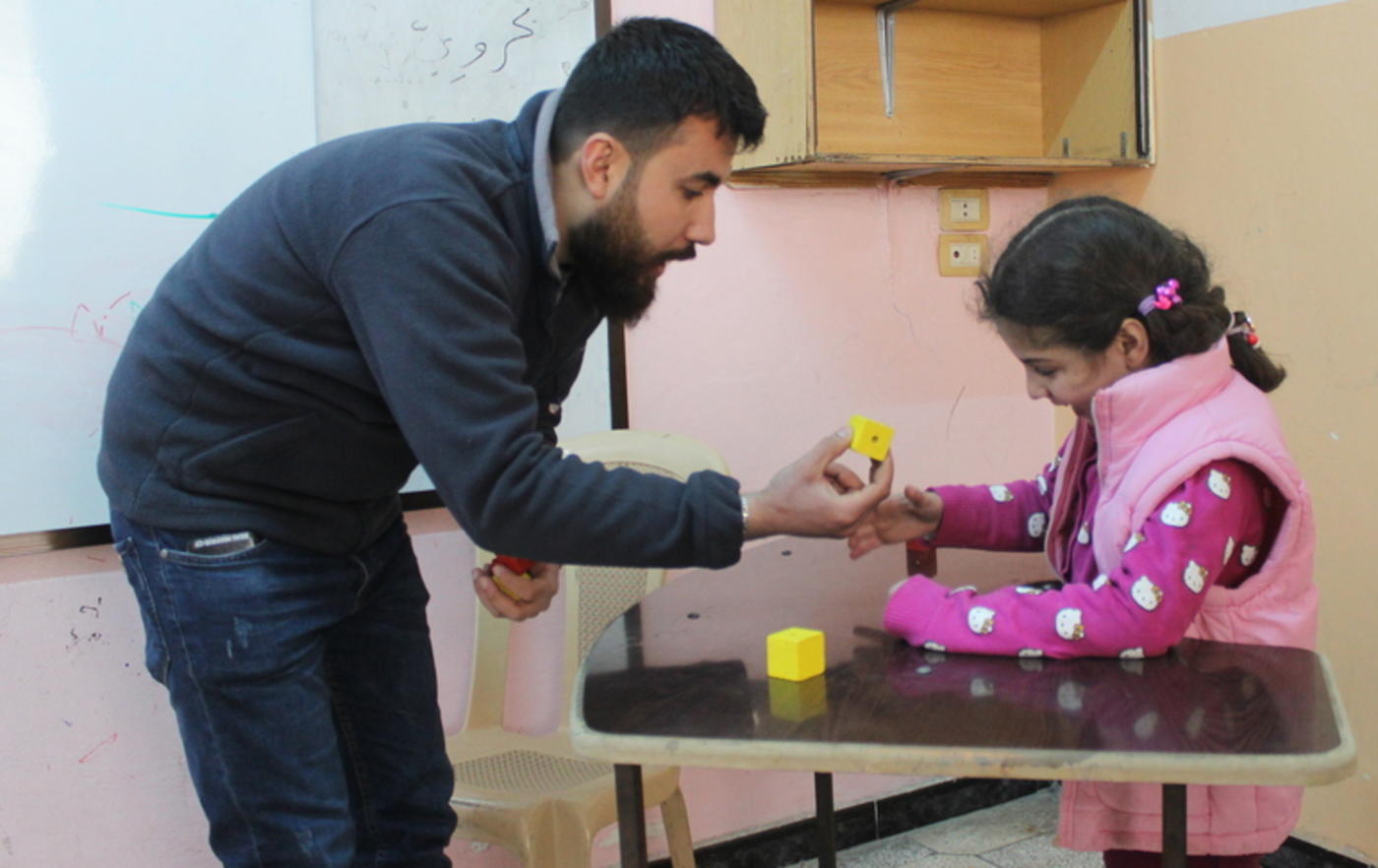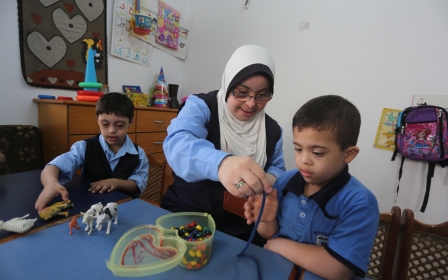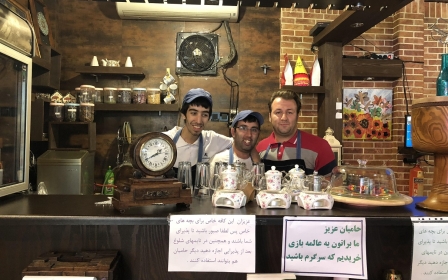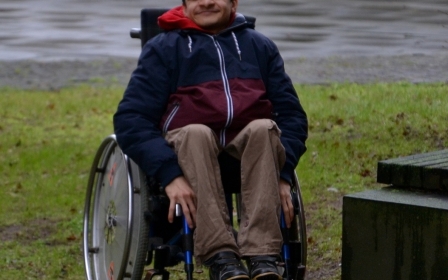Autism in a war zone: How children struggle to find the care they need
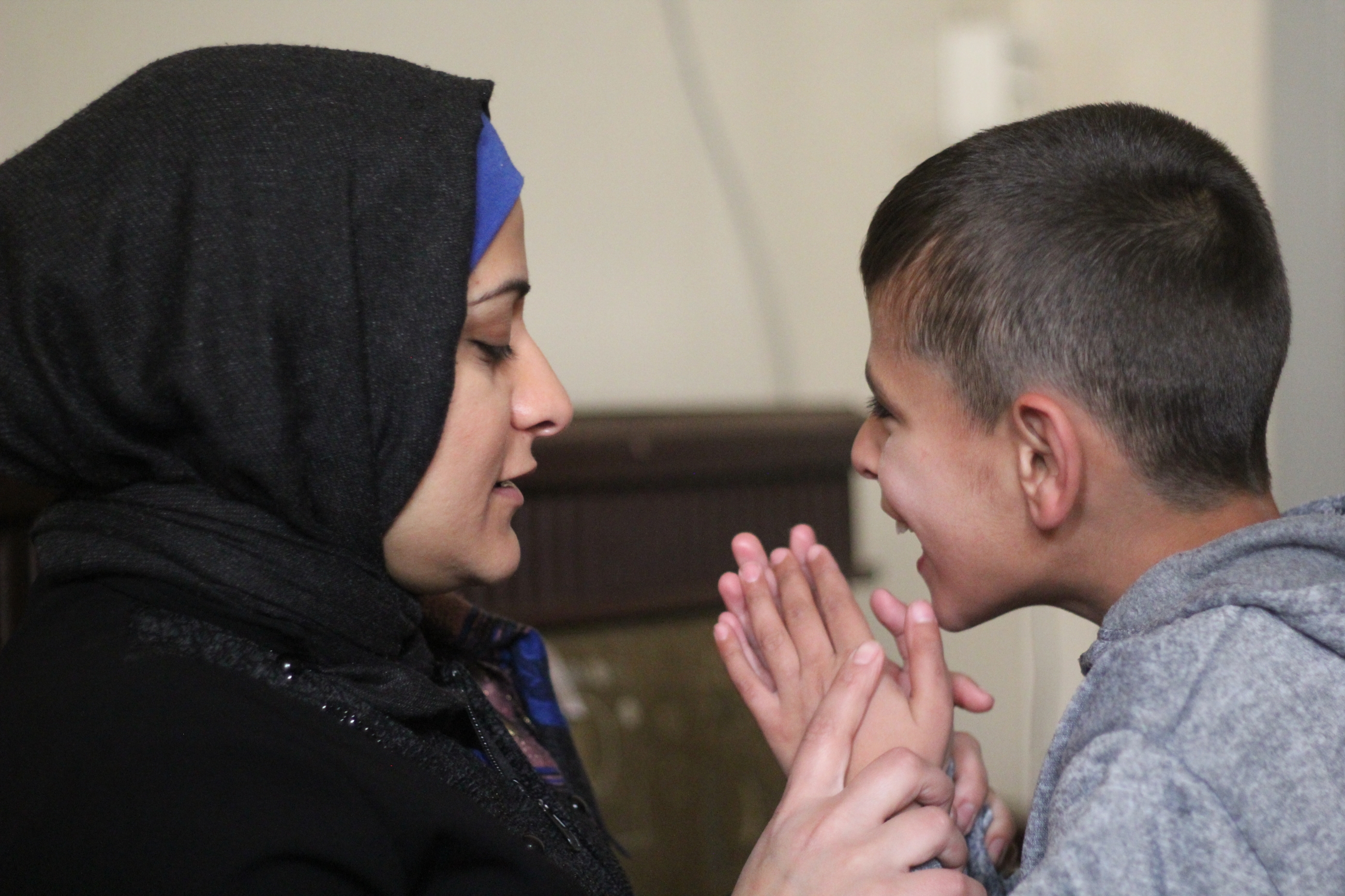
Roba Ghanam has known nothing but war the past few years. Armanaz, the small town near the Turkish border where she lives, is at the heart of Idlib province, Syria’s deadliest battleground, and the ongoing government offensive to take the last remaining rebel stronghold.
Ghanam’s concerns go beyond the conflict, however. It began several years ago, when she noticed that her son Ayham, now eight, was increasingly silent and failing to interact with other people. He also slept a lot and did not seem happy.
But Ghanam, 24, did not think to take him to medical professionals. “No one has awareness about mental diagnoses," she says.
Eventually, when Ayham was three, he began seeing doctors. But a lack of awareness about autism in Syria created obstacles, as Ghanam heard the same thing from half-a-dozen physicians. “They reassured me that he is all right and he only needed medicine,” she says.
New MEE newsletter: Jerusalem Dispatch
Sign up to get the latest insights and analysis on Israel-Palestine, alongside Turkey Unpacked and other MEE newsletters
Eventually a doctor in north Hama, where Ghanam used to live, diagnosed Ayham with autism.
“We have a big problem in Syria, especially in terms of awareness about autism and special needs,” Ghanam says. “[This] is related to the lack of support for them until now.”
Lack of care in Idlib
Ayham's life has lasted as long as the Syrian war, which has left at least half a million dead and more than 11 million displaced. Among those who have fled are medical professionals, including doctors and nurses. Hundreds of hospitals and health centres, including specialist facilities, have been targeted.
Idlib poses a dilemma for states and NGOs looking to support the humanitarian effort there. By 8 May, more than a dozen aid organisations had suspended operations in parts of the province due to the dangers posed by the fighting between the Hayat Tahrir al-Sham (HTS), which has ties to al-Qaeda, and the government.
Tens of thousands have been displaced since the the start of the year. And, as elsewhere in Syria, hospitals have been bombed out of commission by government shelling.
It has left parents like Ghanam struggling to find support for their children. In rebel-held Syria there are limited resources for autism, as well as little social awareness of the condition, exacerbated by the worsening war.
Hamza Hashim, a doctor from Ghouta, came to Idlib province in 2018 when his hometown was evacuated before the government takeover.
He now works at a hospital treating patients like Ayham: he says that autistic children’s development has been hindered by the lack of social awareness and the conflict.
“The current security situation of barbaric bombardment exacerbates the issue because of the fear it causes in them,” he says. “Autistic children need community support to help them live their lives."
Isolated at school
The challenges faced by Ghanam are familair to Khaled Ashi, who lives in Idlib city and whose son Alaa, 14, one of three children, also has autism.
“It’s barely recognised here,” says Ashi, who believes that the lack of recognition means people often write his son off. “They just say: ‘Ah, he’s mentally disabled,’” he says. “It frustrates me because this ignorance will affect my child’s future.”
'What is the crime of children like mine to be forgotten and neglected like this?'
- Khaled Ashi, father
Alaa’s school is currently closed due to the fighting in Idlib, Ashi says. When it was open, Alaa would often sit alone and not interact with other children, something Ashi attributes to students and teachers not knowing much about children with autism.
“The thing about children like him, you need to always be with him and do things many times until he gets along with you,” he says.
“They’re not able to access special school or stay somewhere safe in a medical facility. There is nothing here, only bombs and death everywhere. Over the past years, our attention and efforts to take care of him have been distracted by the war.”
Ashi does not want his child to be denied the chance to live a normal life by the hardship of the conflict.
“What is the crime of children like mine to be forgotten and neglected like this?” he said. “And why they should be one of this war’s forgotten victims?”
Centre offers support
But support is available - if families know where to look. In June 2017, Ghanam located the Sanad Centre in Kafr Takharim, near Armanaz, which Ayham now attends for therapy.
The facility, which has around 80 patients, specialises in caring for teens and preteens with special needs, disabled children and those with learning difficulties.
Ghanam admits that she was in denial about Ayham’s autism until he turned seven. “All my dreams fell to pieces and my life was not easy in the first few months,” she says.
Once she found the Sanad centre, she moved to Armanaz from her family home in Atme and began working there voluntarily on a daily basis.
“I was shadowing the therapist, attending sessions with patients, like his assistant,” she says. After each session with a patient, the therapist would explain to her the child's medical condition and what he did with them.
Ghanam says that the centre does not have unlimited funds, but it does provide the support and respite that she and her son have spent years looking for.
“We are relying on our personal resources to support the special needs population to the best of our ability,” she says.
And despite the conflict and people's ignorance Ashi sees some hope for the future, not least in people's changing attitudes.
“People, in general, have empathy towards this part of the community, whether children or adults with autism,” he says. “People tend to help them and look after them."
Hashim adds that Syrian society is capable of kindness towards those with special needs - even if it does not understand the medical problems they face. “The view of the community is sympathetic towards them."
Middle East Eye delivers independent and unrivalled coverage and analysis of the Middle East, North Africa and beyond. To learn more about republishing this content and the associated fees, please fill out this form. More about MEE can be found here.


